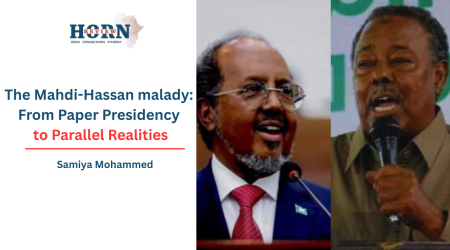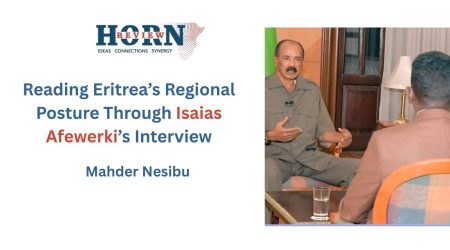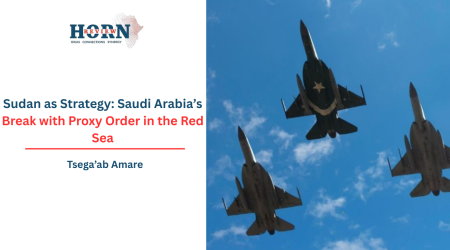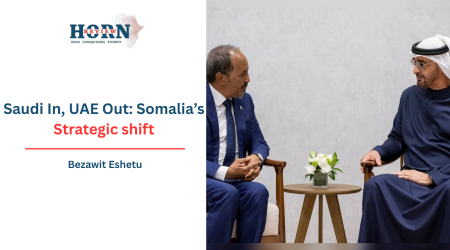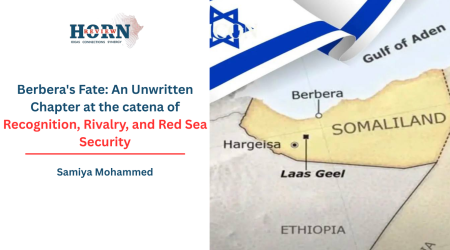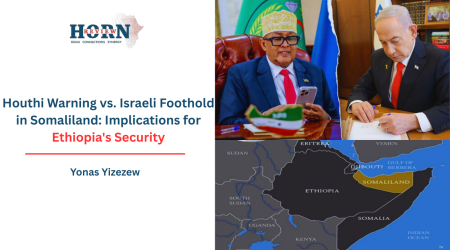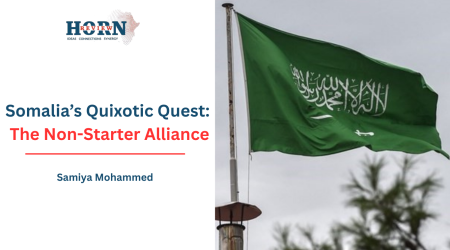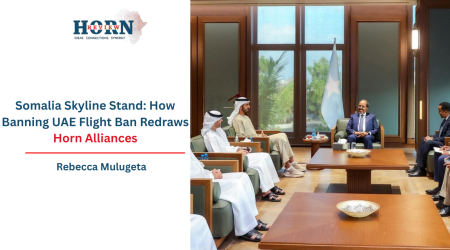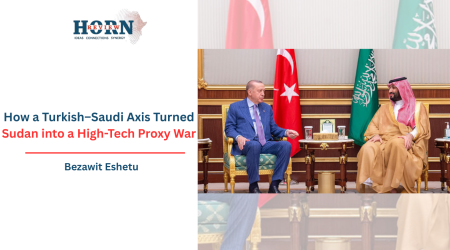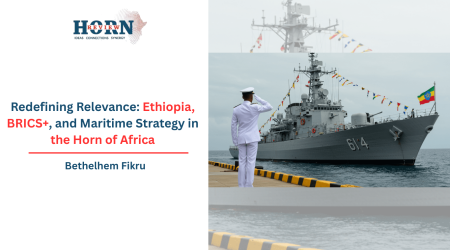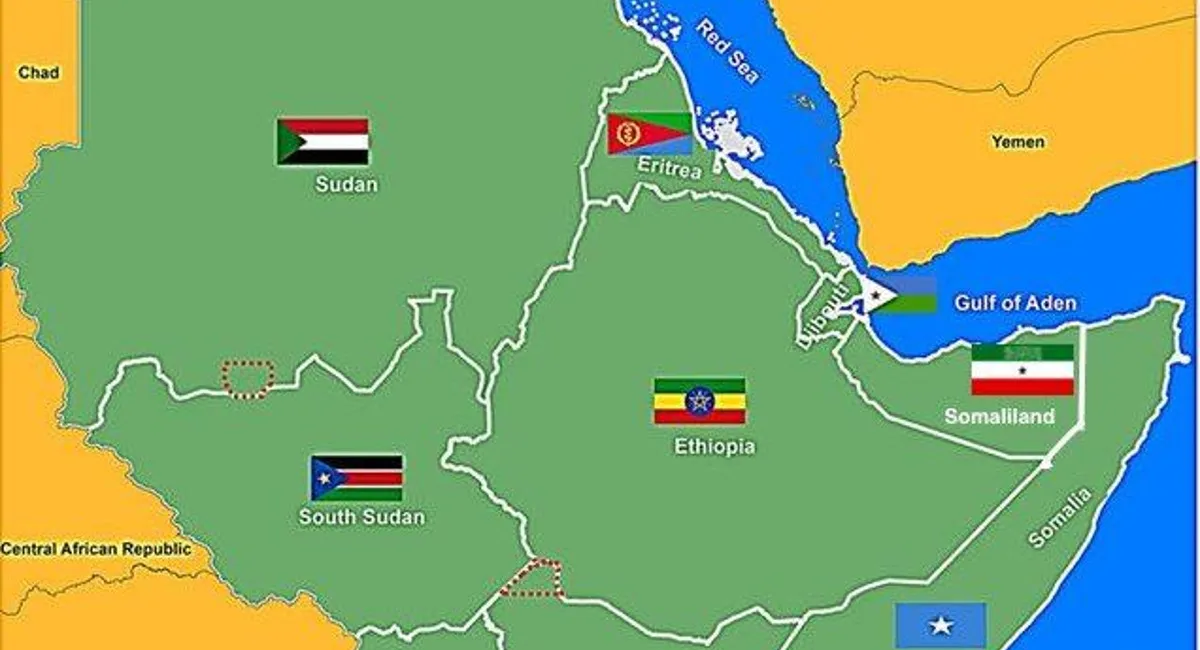
5
Apr
With War Off the Table, Economic Growth for Horn of Africa is Priority #1
For more than a year, there has been constant talk of war in the Horn of Africa, involving Ethiopia. I have spoken out loudly and consistently against war mongers and scenario predictions of military conflict. Ethiopian Prime Minister Abiy Ahmed’s presentation before his parliament on Thursday, March 19, where he declared: Ethiopia does not have any intention of engaging in conflict with Eritrea for the purpose of gaining access to the [Red] sea, should terminate all prattle of war. Unless there are political powers and bad actors outside and/or inside the Horn of Africa, who would actually desire such a horrific conflict.
Scenario for Somalia
For the entirety of 2024, there was continuous chatter on X and hundreds of articles predicting a potential military conflict between Ethiopia and Somalia. With the foolish October 2024 security pact between Egypt, Eritrea, and Somalia, this conflict could have been cataclysmic for Africa. Of course, it never materialized.
The concern was supposedly due to the signing of a Memorandum of Understanding (MoU) between Ethiopia and Somaliland to allow Ethiopia access to the port of Berbera in return for recognition of an independent Somaliland. The port city of Berbera that lies on the Gulf of Aden, which flows into the Red Sea, would have given Ethiopia access to one of the most strategic shipping-trade routes in the world.
However, we should take note that the actual written content of this MoU was never publicly revealed, leaving the public and the war mongers ignorant of its full substance. Also, there is a legitimate discussion of recognition of Somaliland, which has functioned as a separate political entity of Somalia for over 30 years. It is beyond the scope of this article to elucidate the history of Somalia and Somaliland. There has been widespread discussion among many African nations on the validity of recognition of Somaliland, including nations outside of Africa, such as the Unites States.
It should be emphasized that despite all the threatening remarks by Somalian officials, to date, there has been no official recognition by Ethiopia of Somaliland. In fact, the opposite occurred. Ethiopia and Somalia have officially announced their intent for increased cooperation. Both leaders, Sheikh Mohamud, President of Somalia and Prime Minister Abiy Ahmed of Ethiopia, signed an official communique issued on February 27, 2025, which stated in part:
The two leaders reaffirmed their commitment to strengthening cooperation for mutual benefit. Recognizing the deep historical ties between their peoples and the shared border that connects them, they emphasized the importance of building trust through enhanced diplomatic, economic, and social cooperation.
Ethiopia and Somalia are independent nations with a common destiny and a shared vision for regional stability and prosperity. In this spirit, both leaders expressed their commitment to implementing strategic infrastructure projects to ensure sustainable development, economic integration and strengthen people-to-people ties.

Leaders of Ethiopia and Somalia Reaffirm Their Commitments to Strengthen Cooperation. Mogadishu, Somalia
Will Tigray Lead to War With Eritrea
Following a two year bloody war (11/2020-11/2022) by the Tigrayan People’s Liberation Front (TPLF) to overthrow the government of Prime Minister Abiy Ahmed, a peace settlement was reached in Pretoria, South Africa. This year there are reports of the potential for a new war in Tigray between two warring TPLF factions. If accounts are accurate this intra-TPLF conflict could possibly result in the defense forces of Eritrea and Ethiopia fighting each other. Another war in the Horn of Africa would be catastrophic for Africans living in this region and must be prevented at all costs.
The Tigray Interim Administration headed by former deputy of the TPLF, Getachew Reda, is supported by the Ethiopian government. The dissident TPLF faction is led by Debretsion Gebramichael and allegedly backed by Eritrea, although the government of Eritrea denies this emphatically. Read: Rising Tensions in Tigray Risk Regional Conflict
If these two national armies and two opposing TPLF militias engage in combat, almost two and a half years after the last war in Ethiopia, it would be devastating not just for Ethiopians but for the entire region. Yet, dozens, if not hundreds of articles have flooded the media predicting this very scenario.
Peace vs War
The cessation of fighting and the ending of war does not equal peace. True peace and stability emanate from a higher domain of statecraft. Below are the two guiding principles for creating a durable peace.
In Europe during the first half of the 17th century, eight million people died in the Thirty Years War, which ended with the famous 1648 Treaty of Westphalia.
Article 1 of the treaty stipulated: …That this Peace and Amity be observ’d and cultivated with such a Sincerity and Zeal, that each Party shall endeavour to procure the Benefit, Honour and Advantage of the other;
Article 2 stipulated: That there shall be on the one side and the other a perpetual Oblivion, Amnesty, or Pardon of all that has been committed since the beginning of these Troubles…
Nations of the Horn of Africa must move forward from the crimes and wars of the past, and design policies that are in their self-interest and in the interest of the other.
Pope Paul VI in 1967, wrote in his famous encyclical Populorum Progressio-“The Development of People”-that the new name for peace is development. The concept of economic development has disappeared from the thinking of all U.S. leaders. For the last six decades, since the death of President John Kennedy, no American official has promoted a policy for real physical economic growth in Africa. Contrary to what most NGOs and so called democracy advocacy groups peddle for Africa, economic development is an essential human right.
Therefore, any true statesperson should be able to understand, that the way to bring durable peace and stability for the region of the Horn, is to design an economic program that benefits the common interests of all the peoples of the region: the elimination of poverty and hunger.
At the age of seventy-four, I am amazed that I am the only American specializing in African Affairs, who understands these two principles. I must also admit that I have encountered few Africans who share my outlook. Yet, it is transparently obvious, that by creating a common shared interest among nations for a more prosperous future, can we as wise men and women, journey on the only true path to peace.
2018 A Lost Moment
Prime Minister Abiy shocked the world, and Africa especially, when he ended two decades of a “state of war” between Eritrea and Ethiopia. He ceremoniously arrived in Eritrea’s capital, Asmara, on Sunday July 8, 2018, greeted by Eritrean President, Isaias Afwerki. For this, Abiy Ahmed was given the Nobel Pease Prize in 2019. President Isaias arrived in Addis Ababa one week later on July 14, for his first visit to Ethiopia in over 20 years. In twenty-five months, the war in Ethiopia erupted, with Eritrea’s military joining with Ethiopia’s National Defense Force to defeat the rebel TPLF. Since then, relations between the two nations dramatically changed.
On July 9, 2018, the two heads of state signed the Joint Declaration of Peace and Friendship between Eritrea and Ethiopia, in Asmara. Their joint agreement read in part:
Conscious that the peoples of Ethiopia and Eritrea share close bonds of geography, history, culture, language, and religion, as well as fundamental common interests;
2. The two governments will endeavor to forge intimate political, economic, social, cultural and security cooperation that serves and advances the vital interests of their peoples;
3. Transport, trade, and communications links between the two countries will resume; diplomatic ties and activities will restart;
5. Both countries will jointly endeavor to ensure regional peace, development, and cooperation…
What was needed after the signing of the 2018 agreement was: immediate implementation. A Grand Design for the development of the Horn of Africa anchored by Ethiopia and Eritrea should have been prepared and discussed. It should have included sharing of increased energy production, port access for Ethiopia to the Red Sea, expanded agricultural production and irrigation, and expansion of new roads and rail transportation systems connecting the two nations and extending to Djibouti, Somalia, and Somaliland.
The ability to act (or not) resolutely with pith and urgency can be decisive in determining the future. We must recognize that the failure to put “shovels in the ground,” after the signing of the 2018 agreement, before the start of the war in Tigray, was a mistake that cannot be repeated. Establishing shared-common economic benefits from collaboration between Eritrea and Ethiopia is pivotal for peace and stability in the Horn of Africa.

By Lawrence Freeman, Researcher on Africa Development Policy

